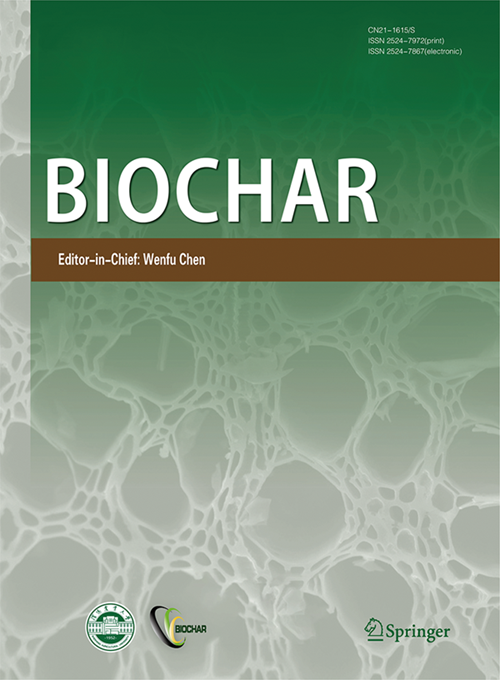在潜在有毒元素(PTE)污染土壤中应用生物炭的微生物反应:影响和潜在机制的重要综述
IF 13.5
2区 环境科学与生态学
Q1 ENVIRONMENTAL SCIENCES
引用次数: 0
摘要
土壤中蕴藏着种类繁多的微生物,是人类文明的生态和社会基础。因此,与联合国可持续发展目标相一致,土壤健康管理始终至关重要。土壤基质中最危险的污染物之一是潜在有毒元素(pte),它会对土壤本地微生物造成应激,严重危害土壤健康。生物炭技术已成为减轻PTE毒性和有利于土壤健康管理的一种有前景的手段。目前的文献已经广泛地整合了关于生物炭改性土壤的潜在后果的知识,但更多地关注土壤系统的物理和化学反应,而不是微生物属性。考虑到土壤微生物不可缺少的作用,本文首先介绍了pte对土壤微生物的胁迫,然后提出了生物炭对土壤微生物的影响机制。最后,综述了生物炭改良土壤中微生物的反应,包括丰度变化、种间关系、群落组成和生物功能。本文旨在为生物炭对土壤微生物健康的影响及其管理提供一个全面的科学观点。图形抽象本文章由计算机程序翻译,如有差异,请以英文原文为准。

Microbial responses towards biochar application in potentially toxic element (PTE) contaminated soil: a critical review on effects and potential mechanisms
Abstract Soil harbors a huge diversity of microorganisms and serves as the ecological and social foundation of human civilization. Hence, soil health management is of utmost and consistent importance, aligning with the United Nations Sustainable Development Goals. One of the most hazardous contaminants in soil matrix is potentially toxic elements (PTEs), which can cause stress in soil indigenous microorganisms and severely jeopardize soil health. Biochar technology has emerged as a promising means to alleviate PTE toxicity and benefit soil health management. Current literature has broadly integrated knowledge about the potential consequences of biochar-amended soil but has focused more on the physical and chemical responses of the soil system than microbiological attributes. In consideration of the indispensable roles of soil microbials, this paper first introduces PTE-induced stresses on soil microbials and then proposes the mechanisms of biochar’s effects on soil microbials. Finally, microbial responses including variations in abundance, interspecific relationships, community composition and biological functions in biochar-amended soil are critically reviewed. This review thus aims to provide a comprehensive scientific view on the effect of biochar on soil microbiological health and its management. Graphical Abstract
求助全文
通过发布文献求助,成功后即可免费获取论文全文。
去求助
来源期刊

Biochar
Multiple-
CiteScore
18.60
自引率
10.20%
发文量
61
期刊介绍:
Biochar stands as a distinguished academic journal delving into multidisciplinary subjects such as agronomy, environmental science, and materials science. Its pages showcase innovative articles spanning the preparation and processing of biochar, exploring its diverse applications, including but not limited to bioenergy production, biochar-based materials for environmental use, soil enhancement, climate change mitigation, contaminated-environment remediation, water purification, new analytical techniques, life cycle assessment, and crucially, rural and regional development. Biochar publishes various article types, including reviews, original research, rapid reports, commentaries, and perspectives, with the overarching goal of reporting significant research achievements, critical reviews fostering a deeper mechanistic understanding of the science, and facilitating academic exchange to drive scientific and technological development.
 求助内容:
求助内容: 应助结果提醒方式:
应助结果提醒方式:


